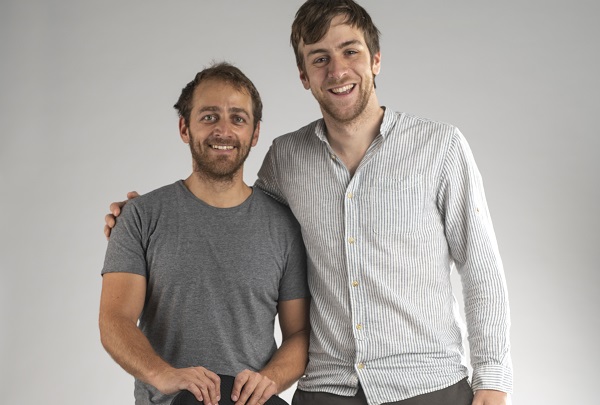The LIT OIC Introduces Itself: Hoss Mobility
Dominik Lorenz and Lukas Rigler aim to roll-out a new generation of wheelchairs, providing those who are less mobile with better ways to get around.

When and how did you first come up with the idea of creating your own company?
Dominik Lorenz: I find entrepreneurship (and research as well) attractive as it allows you to do something that would not have existed prior, had you not done it. If my business partner, Lukas Rigler, and I hadn't decided back then to create our own company, then hoss wouldn't exist today (but that doesn't mean that it's all thanks to just the two of us - a great team is indispensable). Creating this company stems from why I was initially attracted to the idea.
What exactly does Hoss Mobility do and what is so special about your business idea?
Dominik Lorenz: We build maneuverable two-wheel wheelchairs that even have off-road capabilities. We wanted to build a wheelchair that not only helps you get to the supermarket or to a café, but can also get you somewhere without having to drive (and all of the issues associated with a situation like that). More often that not, even the smallest obstacles can be a problem because the small front wheels can get stuck easily.
You have built over 200 wheelchairs to date since creating the company in 2014. How did you come up with the inspiring idea to use maneuverable Segway technology in wheelchairs?
Dominik Lorenz: Lukas had just sold a Segway on Ebay and the buyer turned out to be a disabled individual. After a great deal of discussion, they converted the Segway into a wheelchair. In this regard, the drive concept was great and not long after, the idea was born to develop a product to meet the needs of those who are disabled. We still work together with the original buyer from back then.
Who, or what, has been particularly helpful as you began growing your start-up company?
Dominik Lorenz: We were very lucky that Austria believed in us and in our idea. Without the support we received, it would have been difficult to get this off of the ground. In the end, however, many things came together and we were able to grow the company. First, we have employees who believe in our vision and we also have suppliers who took higher risks for us than for other projects. Tech2b connected us well and we learned from other start-ups as well, just to name a few factors.
What are some of the challenges you are currently facing?
Dominik Lorenz: The biggest challenge at the moment is getting the components we need and scaling production.
You’ve been working at the LIT Open Innovation Center for some time now. Why have you decided to work there?
Dominik Lorenz: Our production site is located about an hour away from Linz, in Waldhausen im Strudengau. I, myself, live in Linz, as do some of our employees. We wanted workspaces in the city and this is more attractive for applicants and employees. In the beginning, we benefited greatly from talking with people from other start-up companies and helped others as we had been able to solve our own problems there, too. I believe there is great potential for constructive and beneficial networking at the OIC.
What advice do you have for students considering starting their own company?
Dominik Lorenz: Choose your team carefully. We often joke around that creating a company together is very similar to getting married.
